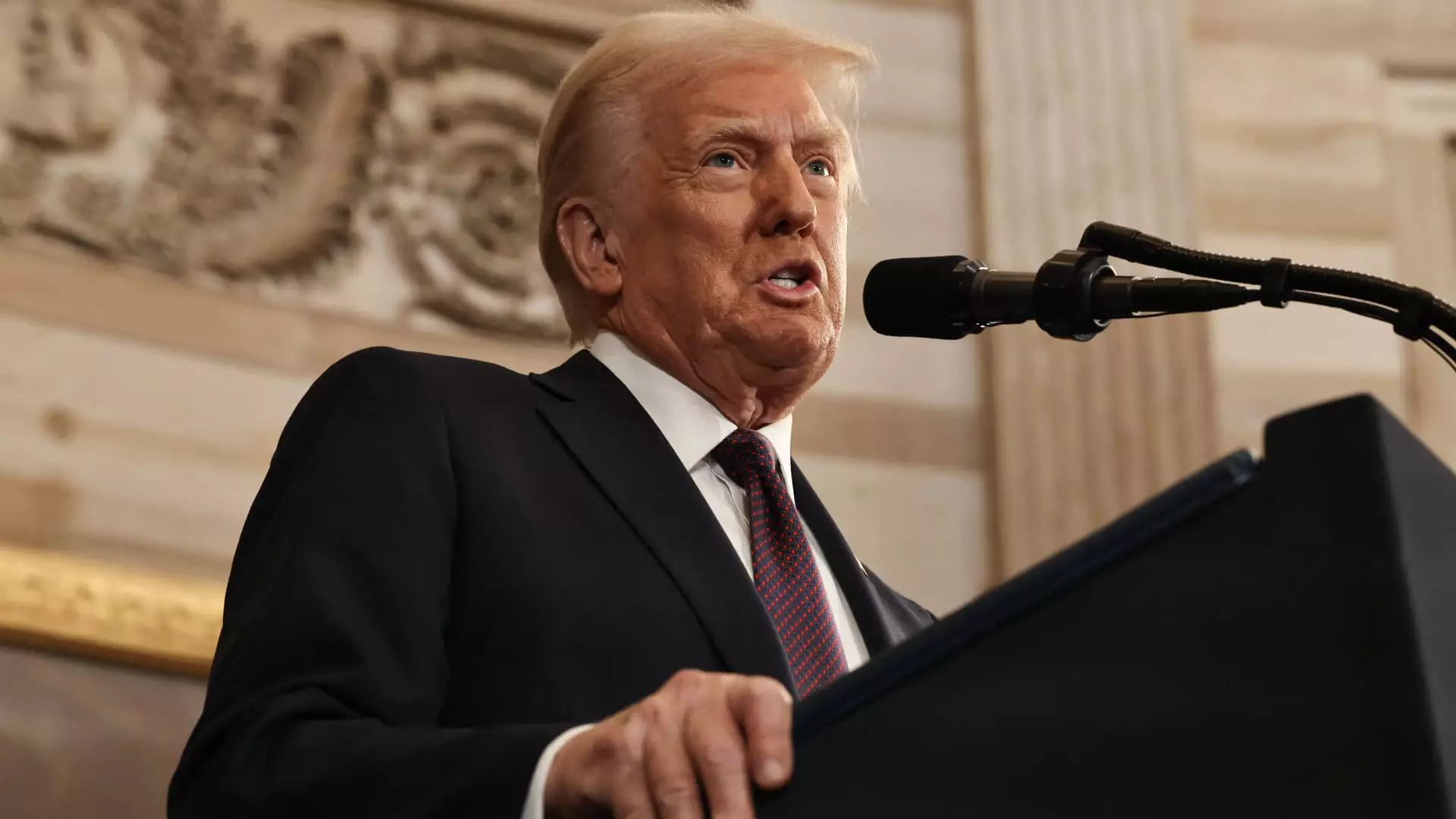Five months ago, President Donald Trump positioned himself as a beacon of peace and unity. His inaugural declaration that America would not just celebrate the victories it wins but also endeavor to prevent conflicts stood as a testament to his ambition. Yet, with his recent military strike on Iran, the very foundation of these promises has crumbled, leaving an unsettling question: Can a leader who vowed to be a peacemaker justify such a drastic and aggressive action? The answer lies in a complex mix of political posturing and the geopolitical realities of Middle Eastern conflict.
This recent U.S. assault on Iran, targeting critical nuclear facilities, is far more than a mere military operation. It is a profound betrayal of the very narrative Trump crafted throughout his campaign. With bold declarations that he would stop the chaos and usher in peace, many saw Trump as a disruptor of the long-standing interventionist policies that have plagued U.S. foreign relations. Now, however, those proclamations sound hollow amid the bombs falling on Iranian soil.
Contradictions of Leadership
Trump’s actions starkly contrast his prior commitments to avoid military entanglements. Just two days before launching the attack, he expressed a willingness to explore diplomatic avenues with Iran. This flip-flopping reveals a disconcerting inconsistency that raises alarms regarding the reliability of his leadership. For a presidency that thrives on bold proclamations, such discrepancies suggest a troubling disconnect between rhetoric and reality.
It’s insightful to consider the implications of Trump’s abrupt shift not only on U.S.-Iran relations but also on broader Middle Eastern dynamics. Trump has frequently criticized others for their perceived incompetence in handling foreign affairs, yet this tactical decision raises questions about his own strategic acumen. The maneuver may seem like a show of strength but effectively undermines his self-proclaimed status as a peacemaker.
The Legacy of Chaos
The irony of Trump’s situation is almost palpable. In a region long defined by turmoil, his latest actions could be construed as a step back into the quagmire he vowed to escape. His past comments about preventing World War Three now ring particularly ironic. Shortly after heralding the Abraham Accords as a groundbreaking pathway to stability, the decision to engage militarily signals a regression into America’s contentious history of intervention. Have the lessons of history—many learned painfully by previous administrations—been disregarded entirely?
As we dissect the ramifications of this aggressive stance, central to the analysis is the inherent contradiction of proclaiming diplomacy while simultaneously authorizing military strikes. The U.S. has gone from a potential mediator to a combatant in a matter of days—a jarring reality that leaves diplomatic prospects dimmed. What kind of precedent does this set for future American administrations? How can the global community trust the U.S. when leveraging military might so readily contradicts its efforts for peace?
A Volatile Future
The fallout from these actions is set to extend beyond immediate reactions within Iran. With the U.S. now directly involved in hostilities, we must ponder the longer-term consequences for both the region and the international community. The immediate fate of diplomacy is uncertain; few can confidently assume that constructive dialogue is still possible amid such hostilities. Concerns linger over how this aggressive posture might embolden or further alienate Tehran, potentially escalating tensions even further.
One must also consider the implications for the U.S. populace, who overwhelmingly desire an end to prolonged military engagements abroad. As Trump pushes forward with this new chapter of U.S. foreign policy, how will his supporters reconcile their initial hopes for peace with the more violent reality unfolding before them? For many, this clash between aspirational governance and the hard-hitting realities of war may provoke a crisis in confidence, not just in Trump but in the broader American experiment itself.
In the delicate balance of international relations, the ripple effects from the White House’s erratic decisions will be felt for years to come. Rather than achieving unity, this latest episode underscores the fundamentally precarious nature of diplomacy, where peace remains an unfulfilled promise and conflict looms painfully close.

